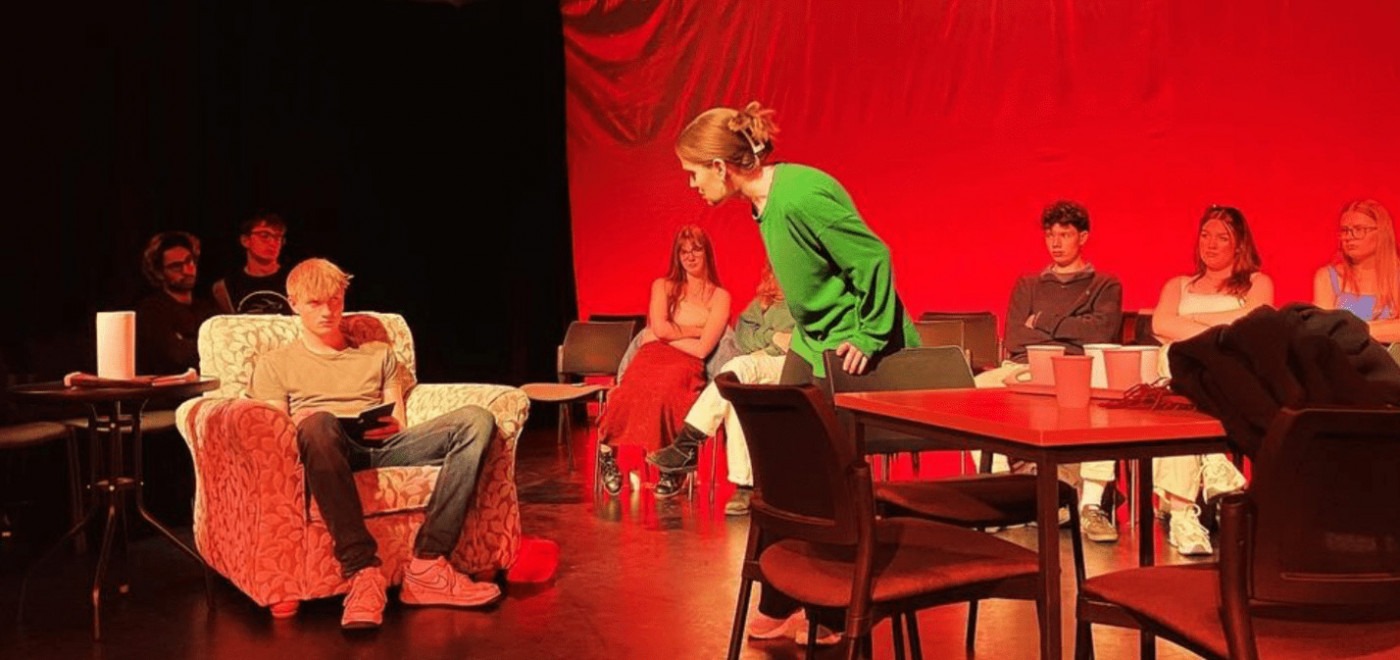A taste of Revolution: Chicken Soup with Barley is served at the Warwick Student Arts Festival
Prior to my attendance of the Warwick Student Arts Festival, I was unaware of the punchy play, Chicken Soup with Barley, written by Arnold Wesker. Upon entering the studio, tucked away in the Faculty of Arts building, the atmosphere was both cosy and welcoming. Attendants were met with a hearty cup of soup, while settling in for a fantastic bit of theatre. However, in contrast to the comfort of my arrival, Chicken Soup with Barley was a truly thought-provoking and powerful display of the growth of communism and the difficulties of family dynamics.
The plot of Chicken Soup with Barley is a fascinating one, exploring the lives of the Jewish-born Kahn family, settled in London in the mid-20th century
The plot of Chicken Soup with Barley is a fascinating one, exploring the lives of the Jewish-born Kahn family, settled in London in the mid-20th century, amid conflicts over their communist identity and wider social issues. The story surrounds itself around Harry (Toby Anderson), the once strident protestor who faces a distinct conflict of beliefs throughout the play, and Sarah (Gemma Short), the headstrong matriarch who aims to uphold the strength of the family. Harry’s growing avoidance to protest becomes causational in the family’s domestic decline, with their daughter Ada (Rebecca Smith) losing her zeal after becoming married, and son Ronnie (Ethan Farmer) losing his passions as a budding ‘socialist poet’.
Short’s performance as Sarah was particularly poignant, depicting the conflict of being a stoic fighter, but also a caring mother who wants to keep her family afloat.
Although Chicken Soup with Barley follows the Kahn family at heart, under the direction of Emma Atkinson and Liv Brown, the play is transformed into an ensemble piece. Through the revolutionary meetings, including the strong arrival of Monty (Harry Hickles) and the comedic relief of Cissie (Somi Chukwuma), there is a lightness and passion in the overriding darkness of the story.
There is something truly depressing in the progression of Chicken Soup with Barley, a testament to the fantastic performances throughout the production. Short’s performance as Sarah was particularly poignant, depicting the conflict of being a stoic fighter, but also a caring mother who wants to keep her family afloat. Short’s depth of performance was proudly exhibited in her closing monologue, aiming to reminisce on the light and hope experienced at the start of the Socialist Revolution, desiring to taste the same friendliness and warmth of chicken soup with barley and savour the sense of hope it brought.
The passion and commitment of the cast and crew radiated out of every aspect of the performance, emphasising their true love of performance.
However, it is hard to not suggest that Chicken Soup with Barley felt like a masculine-led play, pioneered by the performances of Anderson and Farmer. The simplistic staging throughout the performance, featuring a bare dining table and a decoratively patterned arm-chair, allows the cold family dynamic to simmer. There is something truly heart-breaking in Anderson’s performance as Harry, slowly deteriorating in his armchair, whilst trying to find a purpose for his life. Farmer’s performance was equally exceptional, with his depiction of the once charismatic Ronnie, who later feels defeated and rejects his poetic aspirations, successfully carries the play with command throughout.
Overall, this production of Chicken Soup with Barley was incredibly powerful, and a fantastic personal introduction to the work of Wesker. The passion and commitment of the cast and crew radiated out of every aspect of the performance, emphasising their true love of performance. It is so exciting that the Warwick Student Arts Festival, which presented a multitude of shows, all free of cost, was performed on the Warwick University campus. I look forward to the hopeful return of the festival, and further opportunities for budding actors and directors to show off their skills to the wider student body.

Comments